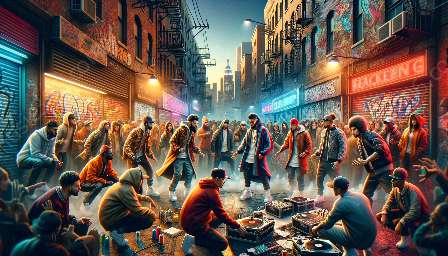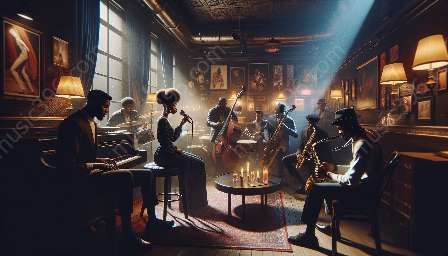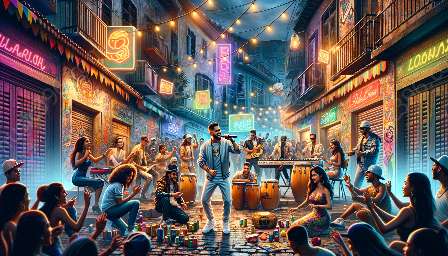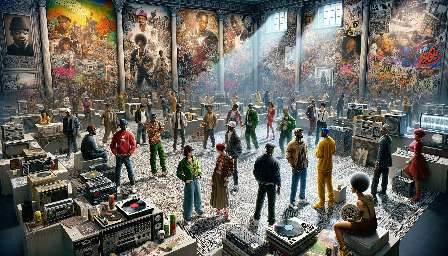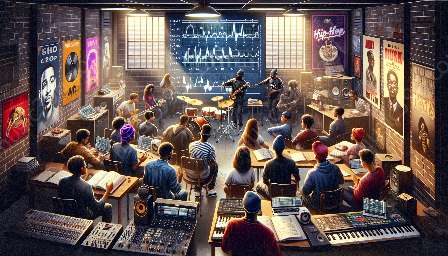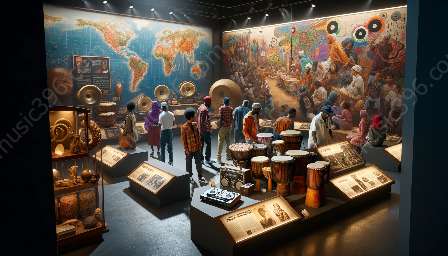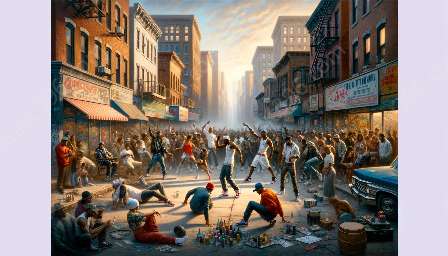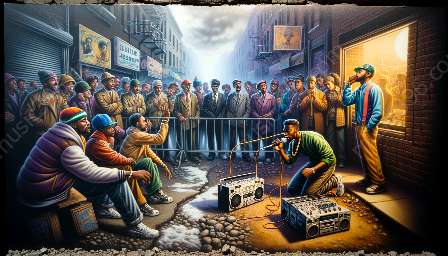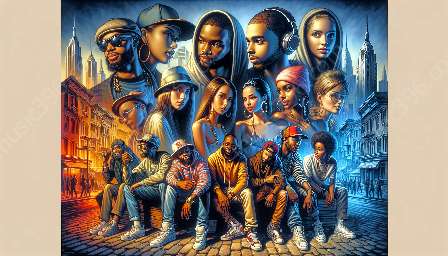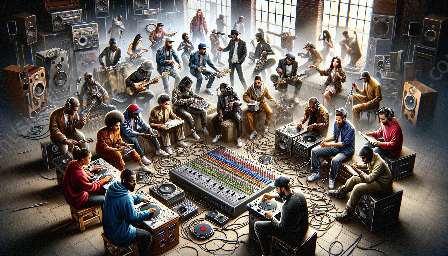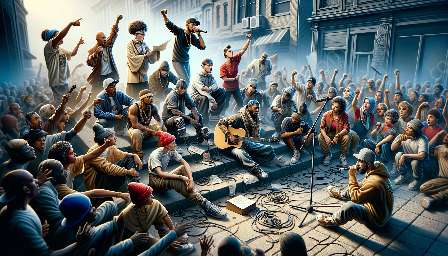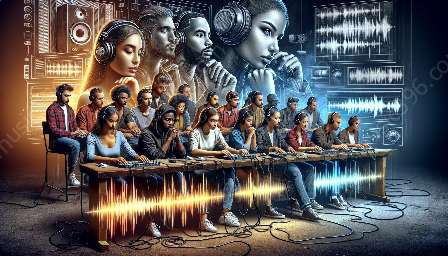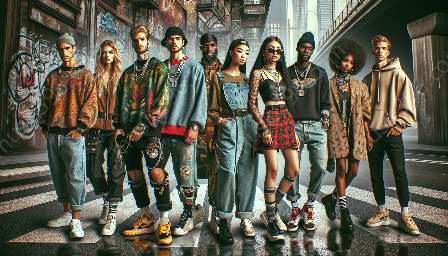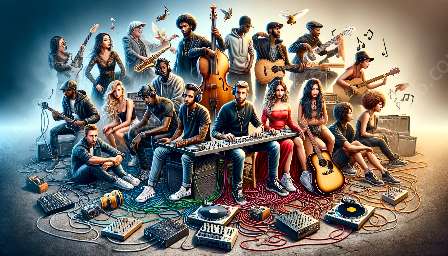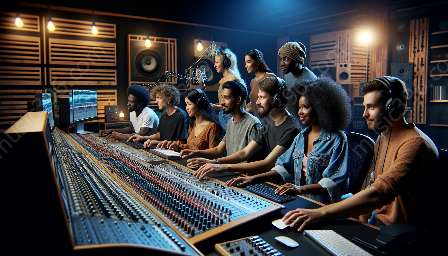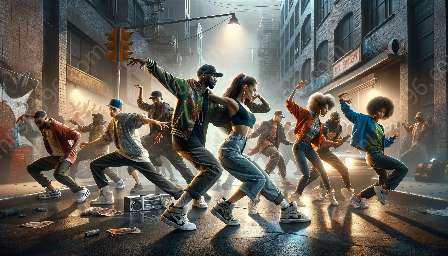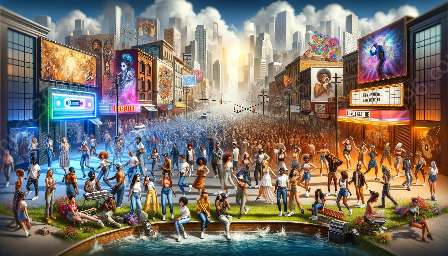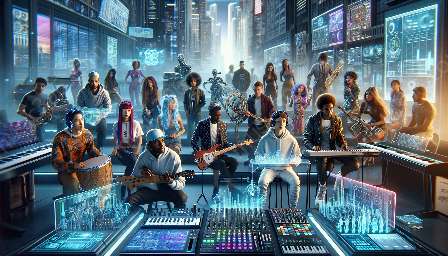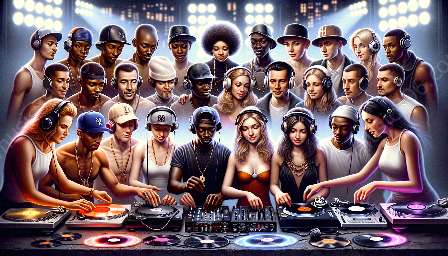Urban music festivals have played a significant role in promoting urban music culture, contributing to its growth and popularity. These festivals, closely linked with the history of urban & hip-hop music, have served as platforms for showcasing emerging talent, celebrating the genre's diversity, and fostering a sense of community among artists and fans. In this topic cluster, we will explore the impact and significance of urban music festivals in shaping urban music culture.
History of Urban & Hip-Hop Music
The history of urban & hip-hop music is deeply intertwined with the cultural, social, and political dynamics of urban areas. Originating as a subculture in the Bronx, New York City, during the 1970s, hip-hop music emerged as a means of self-expression for marginalized communities. It reflected the experiences, struggles, and aspirations of inner-city youth, addressing issues such as poverty, violence, and systemic injustice. As the genre evolved, it became a powerful voice for urban communities across the United States and globally.
Development of Urban Music Festivals
Urban music festivals emerged as a natural extension of the growing hip-hop and urban music movement. These festivals provided a platform for artists, DJs, and performers to connect with audiences, showcase their talent, and amplify their voices. Initially, such festivals were grassroots events organized within urban neighborhoods, serving as community gatherings that celebrated the vibrancy of urban music culture. Over time, the popularity and influence of urban music festivals expanded, attracting larger audiences and gaining recognition as significant cultural events.
The Significance of Urban Music Festivals
Urban music festivals hold immense significance in the promotion and preservation of urban music culture. These events act as catalysts for artistic expression, allowing emerging and established artists to reach diverse audiences and gain recognition. Additionally, urban music festivals contribute to the economic growth of urban areas by attracting tourism and fostering local businesses. Moreover, these festivals serve as platforms for cultural exchange, bringing together people from different backgrounds to celebrate the shared love for urban music and its diverse styles.
Impact on Community and Identity
Urban music festivals play a crucial role in shaping the sense of community and identity within urban areas. By providing a space for artistic expression, these festivals empower local talent and offer opportunities for creative collaboration. They also serve as a platform for dialogue on important social and political issues affecting urban communities. Through music, urban festivals contribute to the formation of collective identity, promoting inclusivity and empowering individuals to embrace their urban cultural heritage.
Innovation and Creativity
Furthermore, urban music festivals inspire innovation and creativity within the urban music scene. By showcasing a diverse range of musical styles, including hip-hop, rap, R&B, and electronic music, these festivals encourage experimentation and cross-genre collaboration. Artists often use these platforms to debut new material, engage with fans, and push the boundaries of urban music culture. This spirit of innovation contributes to the evolution of urban music, ensuring its relevance and resonance in contemporary society.
Conclusion
Urban music festivals have become integral in the promotion of urban music culture, cultivating a dynamic and inclusive space for artistic expression, community engagement, and cultural exchange. By examining the correlation between urban music festivals and the history of urban & hip-hop music, we gain a deeper understanding of the transformative impact of these festivals on the urban music landscape. As these festivals continue to evolve and expand, they will undoubtedly play a pivotal role in shaping the future of urban music culture.

